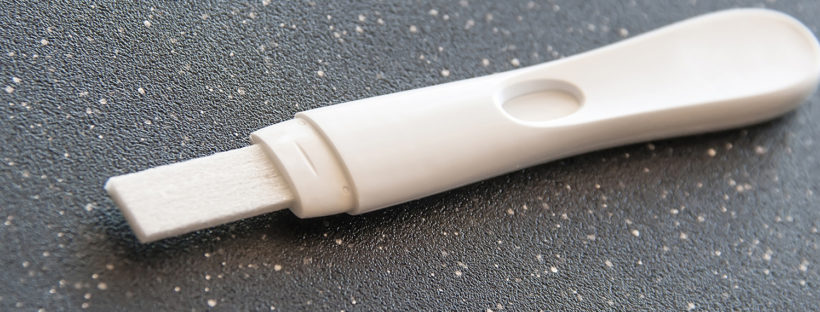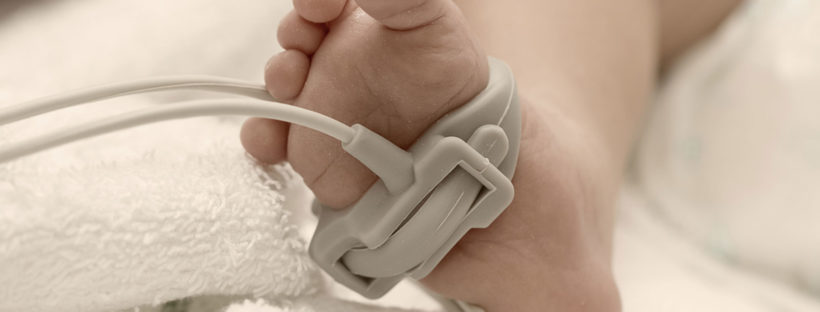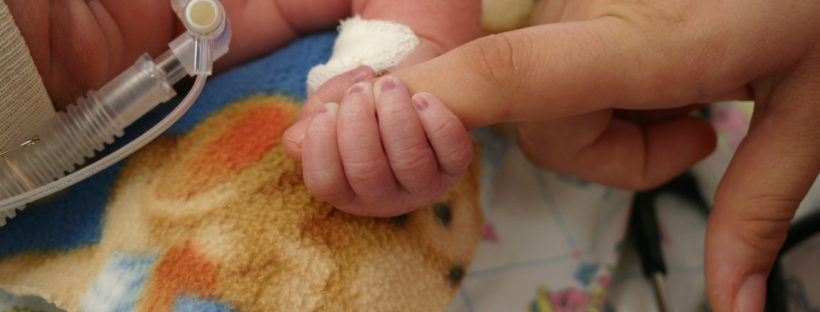My husband and I always wanted a family. The summer before I turned 29, we decided to start trying. Little did we know there would be a roller coaster of a journey ahead.
I got my first positive pregnancy test in September. I knew my life was about to change. I quit smoking, which was a huge deal for me. My husband and I were thrilled. At my first ultrasound, there was silence. The verdict was devastating: I was miscarrying due to a blighted ovum.
My doctor advised me to wait two full cycles before trying to conceive again. I didn’t track anything; I just guessed at when I was going to be ovulating. In February, I got my second positive test. Though nervous, I had a better feeling, thinking the odds were low I would have a second miscarriage.
We picked out names, I looked at birth plans, and at 8 weeks I started building a baby registry. We were cautious to share the news, waiting to tell even our parents. On March 20, one week after announcing our new addition, I went to the restroom and noticed blood. I immediately fell on the floor crying. In that split second, my dreams of our family were crushed.
When they did the ultrasound in the emergency room, they wouldn’t let me see the screen, saying only that they couldn’t detect a heartbeat. I felt like I died inside. My doctor ordered a D&C (dilation and curettage) and told us to wait two cycles.
This time, I took ovulation and trying to conceive (TTC) seriously. I continued taking prenatal vitamins, educated myself, and tracked my ovulation with digital ovulation predictor. The moment I saw the little smiley face letting me know I was ovulating, I told my husband it was go-time! The two-week waiting period after that felt even longer than the two cycles we had to wait to start trying again.
 On July 11, I got my big fat positive! I called my husband, and then I called my mom, who was so supportive. I had a form of PTSD after dealing with two miscarriages, and I didn’t want to tell anyone I was pregnant, so as to avoid the embarrassment.
On July 11, I got my big fat positive! I called my husband, and then I called my mom, who was so supportive. I had a form of PTSD after dealing with two miscarriages, and I didn’t want to tell anyone I was pregnant, so as to avoid the embarrassment.
At 6 weeks, I had my first ultrasound. When we saw that tiny little heartbeat, I cried. My doctor put me on progesterone. We had our next ultrasound at 11 weeks, and there was our baby, active and wiggling around. It was amazing! I wasn’t used to seeing my ultrasounds. Every time I saw my baby felt like a miracle. We learned my due date was March 20—the date of my second miscarriage. Everything was coming full circle. Even more exciting, it was a boy!
 As badly as I wanted to meet my son, he was even more anxious: At 34 weeks and 4 days, Charles David Poe made his appearance. His birthday is February 9, the same date I had my second positive pregnancy test the year before. Tiny but strong, Charlie came into our lives so fast and has made it indescribably beautiful. It was beyond worth it to have gone through all the turmoil of TTC to get to this amazing part of my life.
As badly as I wanted to meet my son, he was even more anxious: At 34 weeks and 4 days, Charles David Poe made his appearance. His birthday is February 9, the same date I had my second positive pregnancy test the year before. Tiny but strong, Charlie came into our lives so fast and has made it indescribably beautiful. It was beyond worth it to have gone through all the turmoil of TTC to get to this amazing part of my life.
 Aimee Poe is an experience specialist at Verizon. She loves playing video games, watching movies, hanging out with her family, and flexing her creative muscle with various projects.
Aimee Poe is an experience specialist at Verizon. She loves playing video games, watching movies, hanging out with her family, and flexing her creative muscle with various projects.
Nurse expert and Healthy Mom&Baby Editorial Advisory Board member Susan Peck, MSN, APN shares her best tips for those trying to conceive.
- Timing is key. “Many women don’t know there is a small window of opportunity each month for conception to occur. Talk to your health care provider about how to predict ovulation based on the length of your menstrual cycle—there’s an app for that!”
- Quality, not quantity. “Couples may not realize that having sex multiple times a day can actually lower sperm counts. I usually recommend daily or even every other day during the few days before during and after ovulation.”
- Patience is a virtue. “If you don’t get pregnant right away after going off birth control, that doesn’t always mean something is wrong. Most couples will take 4-ish months or so before conception occurs.”
- Plan ahead. “Preconception care is so important. Talk with your health care provider about any health problems you have that could affect pregnancy as well as the safety of any medications you take. You may need to switch medications while trying to get pregnant. You can reduce your risk of neural tube defects by beginning a prenatal vitamin which includes 0.4 mg of folic acid before getting pregnant. Now is also the time to quit smoking.”
- Leave the lube. “Using a lubricant during sex can make it harder for the sperm to swim the long distance to the fallopian tube. If you must, try using a sperm-friendly lubricant like Pre-Seed instead.”








 Lori is a NICU Staff Nurse at Sahlgrenska University Hospital in Gothenburg, Sweden. After becoming a nurse, Lori traveled across the country to work a three-month travel contract in San Francisco, California. Nearly five years later her journey continued to Gothenburg, Sweden, where she now lives and works.
Lori is a NICU Staff Nurse at Sahlgrenska University Hospital in Gothenburg, Sweden. After becoming a nurse, Lori traveled across the country to work a three-month travel contract in San Francisco, California. Nearly five years later her journey continued to Gothenburg, Sweden, where she now lives and works.





